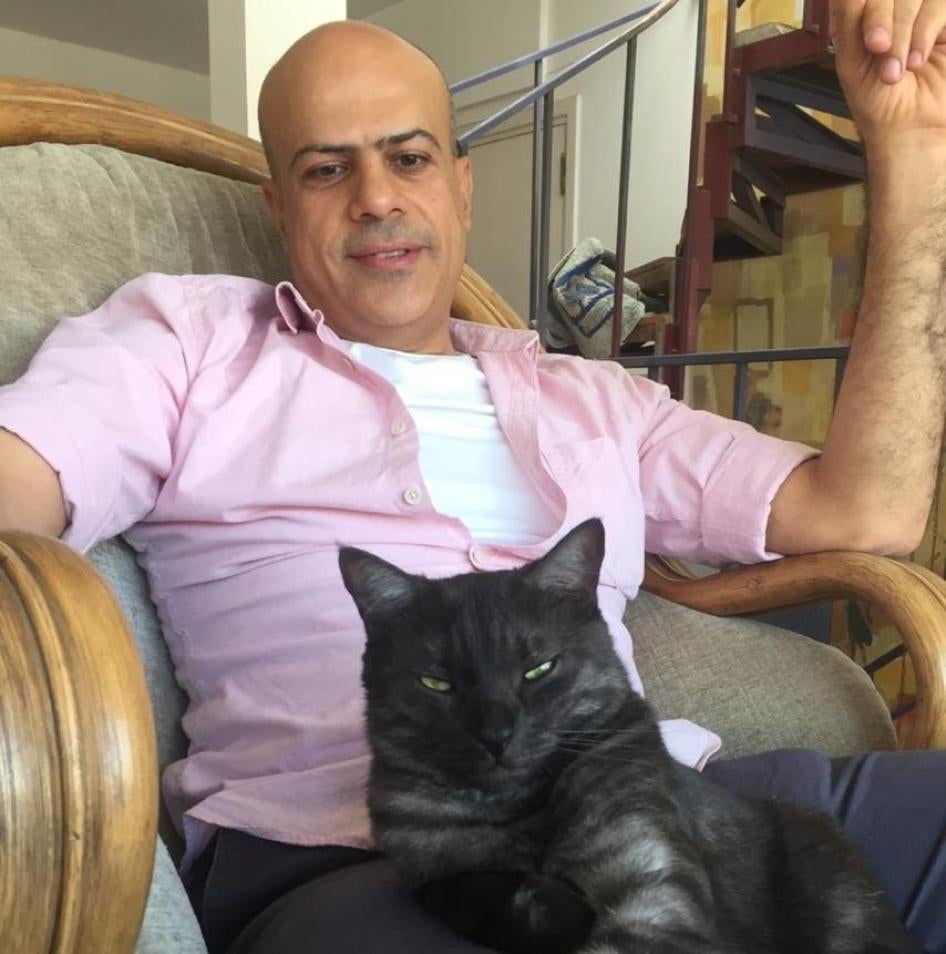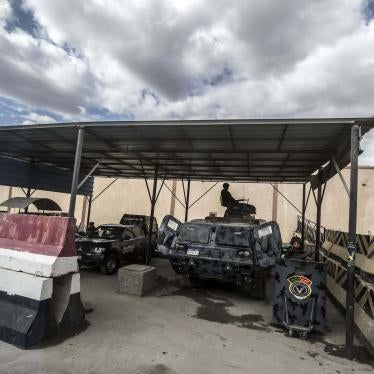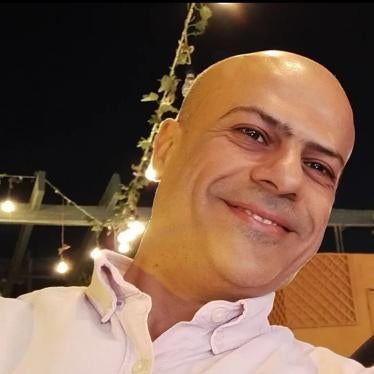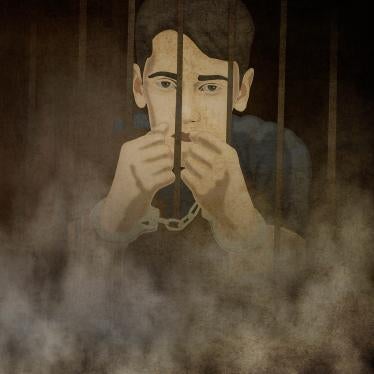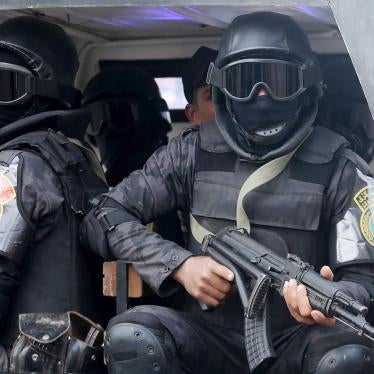(Beirut) – The Egyptian authorities have failed to conduct an independent, effective, and transparent investigation into the suspicious death in custody of the economist Ayman Hadhoud, Amnesty International and Human Rights Watch said today. The prosecutors who investigated his death ignored mounting evidence that the authorities forcibly disappeared, tortured, and otherwise ill-treated him, and denied him access to timely and adequate health care.
On June 23, 2022, a Cairo criminal court rejected the family’s appeal to reinvestigate and their requests to examine vital evidence in relation to the circumstances of Hadhoud’s death. Hadhoud went missing on February 5 and died in custody in suspicious circumstances on March 5, but the authorities concealed his death until April 9. The Public Prosecution closed its investigation on April 18, six days after announcing it, concluding that his death was caused by “cardiac arrest” and was not unlawful.
“The severely flawed investigation into the causes and circumstances of Ayman Hadhoud’s death in custody is another stark reminder of the impunity crisis in Egypt,” said Philip Luther, Middle East and North Africa Research and Advocacy Director at Amnesty International. “Failure to adequately investigate and ensure accountability for his suspicious death only emboldens security forces to continue violating detainees’ right to life with no fear of consequences.”
Human Rights Watch and Amnesty International interviewed Hadhoud’s family, lawyers, and sources at Cairo’s Abassiya Psychiatric Hospital, where Hadhoud had been held, and reviewed leaks of the hospital admission records, official correspondence, and statements.
The groups found that Egyptian authorities failed to conduct a thorough, effective, transparent, independent, and impartial investigation into the causes and circumstances of Hadhoud’s death, in line with the requirements of the International Covenant on Civil and Political Rights, to which Egypt is party, and the UN Minnesota Protocol on the Investigation of Potentially Unlawful Death.
The authorities should immediately extend an invitation to the United Nations special rapporteurs on extrajudicial, summary or arbitrary executions, and on torture and other cruel, inhuman or degrading treatment or punishment to visit Egypt to examine cases of torture, ill-treatment, and deaths in custody, including Hadhoud’s, the groups said. The authorities should pledge to fully protect the investigators, witnesses, victims, and activists who cooperate with them, and facilitate their work.
Failure to conduct a thorough, effective, and transparent investigation
The prosecution’s investigation failed to respond to key questions and consider vital evidence, the groups said. The evidence dismissed or left unexamined includes the testimony of two witnesses who noticed injuries on Hadhoud’s face and head at the hospital mortuary on April 10, before his autopsy.
Amnesty International and Human Rights Watch reviewed official records leaked from the Abassiya Psychiatric Hospital, where Hadhoud was admitted on February 14, that show that Hadhoud was referred a day earlier to an orthopedic specialist. This strongly suggests that Hadhoud either had visible injuries or had complained about injuries, an informed source at the hospital told Amnesty International.
The authorities have repeatedly refused to provide a copy of the case file and the autopsy report to Hadhoud’s family and lawyers, and only allowed the lawyer to briefly examine them without taking copies. The authorities also refused the family’s request to have an independent representative present during his autopsy on April 11 and refused to extract and review CCTV recordings in places where Hadhoud may have been arrested and held.
An independent review of the autopsy analysis, raw data, and other vital evidence by a committee of forensic experts, as part of a larger independent investigation, is needed, Amnesty International and Human Rights Watch said.
Failure to Provide Critical Medical Care
The Public Prosecution’s investigation also did not address the authorities’ failure to provide timely and adequate medical care when Hadhoud’s health deteriorated. Copies of leaked correspondence between the psychiatric hospital director, the head of its forensic medicine department, and other medical staff, dated April 18, reveal that Hadhoud’s health severely deteriorated at 3:30 p.m. on March 5, but he was not promptly transferred to an outside hospital equipped to treat him despite the imminent danger to his life. The documents show that when Hadhoud’s health deteriorated, a junior resident doctor on duty called an internal medicine doctor, who prescribed medication remotely without examining the patient.
The documents also show that psychiatric hospital staff members were apparently required to call and notify an Interior Ministry officer and a hospital administrator of Ayman Handhold’s condition and waited for an ambulance. By the time the ambulance arrived, it was too late, as he died at around 8:30 p.m.
Public Prosecution's Involvement in Abuse
The Public Prosecution’s investigation did not address Hadhoud’s enforced disappearance from February 5, when his family last saw him, including the authorities’ failure to provide his family with information about his fate and whereabouts until April 9, or 35 days after his death.
On February 8, one of Ayman Hadhoud’s brothers was called by a police officer and summoned to the Amiriya Police Station in Cairo. There, National Security Agency (NSA) officers questioned him about Ayman Hadhoud’s political activities and views and claimed that he was in police custody. Yet on February 18, the Public Prosecution told the family that there was no “criminal case” against Ayman Hadhoud and denied them any information about his fate and whereabouts.
Concerns about the Public Prosecution’s role in investigating Hadhoud’s death are reinforced by the well-documented, years-long patterns of complicity by the Public Prosecution in abuses by security forces, particularly the NSA. Prosecutors have systematically neglected to investigate allegations of enforced disappearance and torture, and have admitted confessions extracted under torture as evidence in trials.
Given the prevailing climate of impunity, it is vital for the international community to support efforts to establish a human rights monitoring and reporting mechanism on Egypt at the Human Rights Council.
“The Egyptian authorities have shown yet again there’s virtually no justice for victims of security forces abuses. Judicial and prosecutorial authorities in other countries could help end impunity by investigating, where appropriate under their national laws and given available evidence, and prosecuting Egyptian security officers implicated in serious abuses, as well as officials overseeing them,” Balkees Jarrah, Interim International Justice director at Human Rights Watch said.
Background
Since President Abdel Fattah al-Sisi effectively came to power in July 2013, dozens of people have died in custody amid credible reports that their deaths resulted from torture and other ill-treatment or followed the denial of timely and adequate health care. In 2021 alone, at least 52 detainees died in custody following medical complications and at least 4 following reports of torture, Amnesty International found. In most cases, prosecutors failed to carry out independent and effective investigations into the causes and circumstances of their deaths.
Torture and other ill-treatment are particularly used during the investigation phase and in the initial period of detention to force confessions and punish dissidents. Human Rights Watch and a public inquiry by the UN Committee Against Torture have found in separate investigations that torture in Egypt is systematic and widespread.
